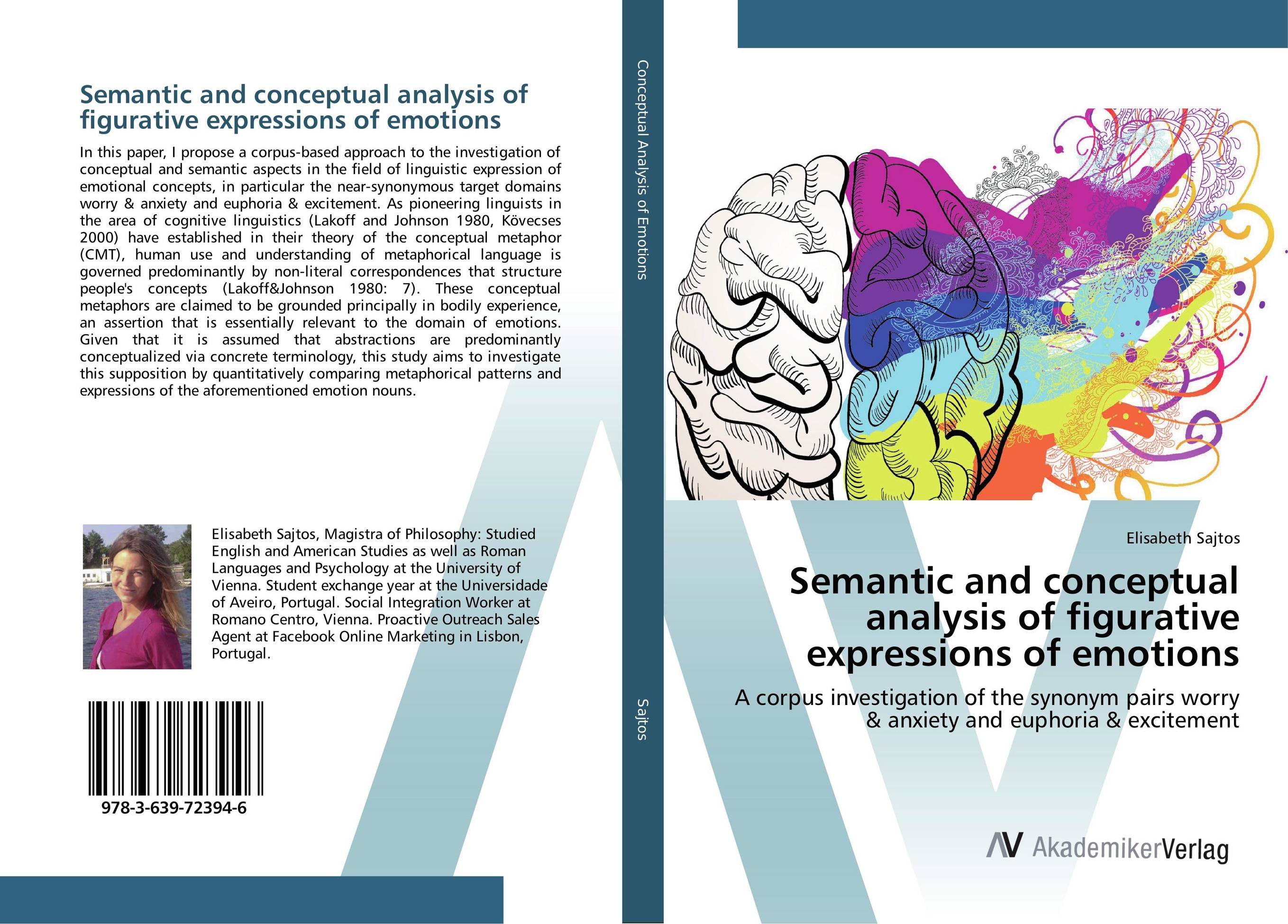| Поиск по каталогу |
|
(строгое соответствие)
|
- Профессиональная
- Научно-популярная
- Художественная
- Публицистика
- Детская
- Искусство
- Хобби, семья, дом
- Спорт
- Путеводители
- Блокноты, тетради, открытки
Semantic and conceptual analysis of figurative expressions of emotions. A corpus investigation of the synonym pairs worry & anxiety and euphoria & excitement

В наличии
| Местонахождение: Алматы | Состояние экземпляра: новый |

Бумажная
версия
версия
Автор: Elisabeth Sajtos
ISBN: 9783639723946
Год издания: 2015
Формат книги: 60×90/16 (145×215 мм)
Количество страниц: 176
Издательство: AV Akademikerverlag
Цена: 42817 тг
Положить в корзину
Позиции в рубрикаторе
Отрасли знаний:Код товара: 150185
| Способы доставки в город Алматы * комплектация (срок до отгрузки) не более 2 рабочих дней |
| Самовывоз из города Алматы (пункты самовывоза партнёра CDEK) |
| Курьерская доставка CDEK из города Москва |
| Доставка Почтой России из города Москва |
Аннотация: In this paper, I propose a corpus-based approach to the investigation of conceptual and semantic aspects in the field of linguistic expression of emotional concepts, in particular the near-synonymous target domains worry & anxiety and euphoria & excitement. As pioneering linguists in the area of cognitive linguistics (Lakoff and Johnson 1980, K?vecses 2000) have established in their theory of the conceptual metaphor (CMT), human use and understanding of metaphorical language is governed predominantly by non-literal correspondences that structure people's concepts (Lakoff&Johnson 1980: 7). These conceptual metaphors are claimed to be grounded principally in bodily experience, an assertion that is essentially relevant to the domain of emotions. Given that it is assumed that abstractions are predominantly conceptualized via concrete terminology, this study aims to investigate this supposition by quantitatively comparing metaphorical patterns and expressions of the aforementioned emotion nouns.
Ключевые слова: Cognitive science, corpus linguistics, culture, Emotions, Cognitive Linguistics, Psychosomatics, Embodiment



